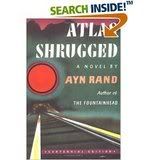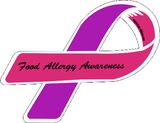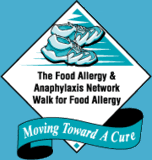Tuesday, April 15, 2008
Food Allergies – Disability/Special Need?
I came across this topic over at Janeen’s and Allergy Moms. Ironically, it is one I recently discussed with my Mom and J.
This article published on April 14th highlights one child’s denial into his town Youth Department due to his nut allergy.
Here are some highlights from the article:
You can read the entire article here.
Do I look at Kayla and see a “disabled” child?” No. But there is no denying that she is a child with “special needs”. She needs special care and attention to keep her safe. I don’t go to birthday parties with the girls without a second pair of hands and eyes. This has nothing to do with not being able to handle both my children. It’s about the need for me to not take my eyes off of Kayla, which leaves me with no way to watch Alysa as well. I have opted out of going to certain types of places or events. I do my best to balance Kayla’s special needs with the fact that she deserves a normal childhood. I don’t ask others to ban dairy from everywhere we go, but I appreciate whatever accommodations they do make for her. I was told at her gymnastics, that during her class, I could leave and come back when it is over – with her allergy, I could never even consider this.
In preparation for her entering the public school system, I have been under the impression that she was and is covered under the Americans with Disabilities Act - more specifically Section 504. I will obviously be looking into this more heavily as she gets closer to attending public school in first grade. I am not a supporter of food bans. I think they are impractical and can create a false sense of security since reading ingredient lists can be very tricky and cross-contamination issues are not easy for everyone to understand. Asking other parents to know what does or does not contain certain ingredients when they do not live the allergy daily is much easier said than done. Plus, there are a lot more food allergies than just peanuts and banning all of them would be extremely difficult to say the least.
With regards to whether the town Youth Department or any other organization should be allowed to bar a child from joining, there is no easy answer. I think it comes down to the type of organization and how the group is funded. For example, a privately funded school getting NO government money should be allowed to accept or deny any student admittance. If they can not or do not want to take on the risk and extra work required to care for a food allergic child that should be their choice. They are being funded solely through their customers. I can not say for sure that Kayla’s school gets no government funding. But I believe they are 100% private, so for argument’s sake, I will assume at this point that they are a fully privately funded school. Therefore, they did not have to take Kayla. Do I think it is right for a privately run school or youth program to deny admittance to a child with food allergies? NO! But it should be their choice. And knowing that Kayla’s school had a choice makes me more comfortable with her being there. I know that they are up to and willing to take on the challenge of caring for her. And they have proven that every day she has been there this year. Now, for a government funded school or organization, the rules should be and are different. A public school is funded through taxes; therefore they can not deny any child access (short of a child being a danger or threat to the other students). Their parents are paying for that school just like the parents of a child without food allergies. Yes, other parents have a right to want what’s best for their child at school and so do the parents of the food allergic. This goes to show one of the many flaws of government funded and government controlled schools (but my feelings on public schools in general are a whole other story).
So, if this town Youth Department is township run and funded like it sounds, that would mean it gets some or all of it’s funding from the residents of the town (i.e. through taxes). Therefore, that little boy should never have been denied access. His parents are then paying for a program that their son is denied access to.
In the food allergy world, I see a lot of negative and downright nasty comments from other parents when it comes to food bans (namely peanuts) or accommodations being made for the food allergic children (such as peanut-free classrooms instead of peanut-free schools). Some even go so far as to tell parents that they should be homeschooling their food allergic child. Again, this boils down to funding. Why should I be forced to home school when I too am paying for the public school system? ESPECIALLY when all it takes to keep a food allergic child safe is education, some emergency training and some adjustments in how things are done and sometimes, yes, what foods are offered (not necessarily bans). This can all be worked out in a way that helps the parents and food allergic child without any undue strain on the other parents and children.
A Disability is defined as…
”A disadvantage or deficiency, especially a physical or mental impairment that interferes with or prevents normal achievement in a particular area.”
I find it ironic, that of all the things that can be considered a disability, the one that some parents find most offensive is the one that revolves around one of our most basic human needs – eating. Don’t these children deserve to eat safe foods in an environment that is safe? Yes they do. Don’t the other children? Yes they do!
There is no answer to this question that will make everyone 100% happy. But if we could focus on educating rather than forcing, then I think most parents would be more than willing to accommodate our food allergic children to the best of their ability.
As for bus drivers and epipens – that is just downright scary that they do not or are barred from using them. It comes down to safety. If a child on that bus needs special medical care, the bus drivers should be able to administer it (within reason). Epipens easily fall under basic medical emergency training. Include it with a CPR and first aid course. Shouldn’t bus drivers know how to handle an emergency situation, especially since there is no nurse around like at the school? I guess this is one reason I should be thankful that Kayla won’t have to ride a bus until she is in high school (she'll be a walker for elementary & middle school - or more accurately, we'll be driving her).
I dread the day that I have to send Kayla off to public school. I don’t have a choice in where I send her like I did for preschool. So I will have to work with what I do have access to and if that means utilizing Section 504 to make sure she is taken care, of then I will do that. My tax dollars fund that school, so you bet that I’ll expect them to make whatever accommodations are necessary to keep her safe!!!
This article published on April 14th highlights one child’s denial into his town Youth Department due to his nut allergy.
Here are some highlights from the article:
”AMESBURY — With food allergies becoming more common, new questions are arising on whether having an allergy that requires life-saving treatment falls under the Americans with Disabilities Act — a law that protects citizens from discrimination based on a disability.
In Amesbury, it's an issue that has hit home. A 6-year-old boy was denied entry into the town Youth Department's summer program last year due to a nut allergy.
Some say the child's legal rights are being violated. But at least one state official says the law isn't as clear-cut as advocates might think. A food-allergy case has been filed with the state Commission Against Discrimination but there has been no finding yet.
Town officials say the current policy — which is reviewed annually and is currently under consideration — discourages taking children with severe food allergies into the program. Officials justify the stance by citing a number of unique factors with the youth program that would make it extremely difficult to make provisions to deal with a life-and-death situation.
‘Although we could train all the staff in EpiPens, there are difficult controls with having an outdoor program that is spread out at the park," Recreation Director Kathy Crowley wrote in an e-mail last week. "In addition, controlling the food and outdoor areas is extremely difficult with 300 children in one program, especially since what kids bring to the programs for snacks and lunches is predominantly peanut butter.’
In Amesbury, the number of children with life-threatening allergies is significant.
According to school nurse records, there are 14 students with life-threatening allergies that have EpiPens just at Amesbury Middle School.”
”After his son had an allergic reaction while on the school bus in December, one Amesbury father is urging state legislators to adopt a state law that would require bus drivers to be trained on how to administer an EpiPen.”
You can read the entire article here.
Do I look at Kayla and see a “disabled” child?” No. But there is no denying that she is a child with “special needs”. She needs special care and attention to keep her safe. I don’t go to birthday parties with the girls without a second pair of hands and eyes. This has nothing to do with not being able to handle both my children. It’s about the need for me to not take my eyes off of Kayla, which leaves me with no way to watch Alysa as well. I have opted out of going to certain types of places or events. I do my best to balance Kayla’s special needs with the fact that she deserves a normal childhood. I don’t ask others to ban dairy from everywhere we go, but I appreciate whatever accommodations they do make for her. I was told at her gymnastics, that during her class, I could leave and come back when it is over – with her allergy, I could never even consider this.
In preparation for her entering the public school system, I have been under the impression that she was and is covered under the Americans with Disabilities Act - more specifically Section 504. I will obviously be looking into this more heavily as she gets closer to attending public school in first grade. I am not a supporter of food bans. I think they are impractical and can create a false sense of security since reading ingredient lists can be very tricky and cross-contamination issues are not easy for everyone to understand. Asking other parents to know what does or does not contain certain ingredients when they do not live the allergy daily is much easier said than done. Plus, there are a lot more food allergies than just peanuts and banning all of them would be extremely difficult to say the least.
With regards to whether the town Youth Department or any other organization should be allowed to bar a child from joining, there is no easy answer. I think it comes down to the type of organization and how the group is funded. For example, a privately funded school getting NO government money should be allowed to accept or deny any student admittance. If they can not or do not want to take on the risk and extra work required to care for a food allergic child that should be their choice. They are being funded solely through their customers. I can not say for sure that Kayla’s school gets no government funding. But I believe they are 100% private, so for argument’s sake, I will assume at this point that they are a fully privately funded school. Therefore, they did not have to take Kayla. Do I think it is right for a privately run school or youth program to deny admittance to a child with food allergies? NO! But it should be their choice. And knowing that Kayla’s school had a choice makes me more comfortable with her being there. I know that they are up to and willing to take on the challenge of caring for her. And they have proven that every day she has been there this year. Now, for a government funded school or organization, the rules should be and are different. A public school is funded through taxes; therefore they can not deny any child access (short of a child being a danger or threat to the other students). Their parents are paying for that school just like the parents of a child without food allergies. Yes, other parents have a right to want what’s best for their child at school and so do the parents of the food allergic. This goes to show one of the many flaws of government funded and government controlled schools (but my feelings on public schools in general are a whole other story).
So, if this town Youth Department is township run and funded like it sounds, that would mean it gets some or all of it’s funding from the residents of the town (i.e. through taxes). Therefore, that little boy should never have been denied access. His parents are then paying for a program that their son is denied access to.
In the food allergy world, I see a lot of negative and downright nasty comments from other parents when it comes to food bans (namely peanuts) or accommodations being made for the food allergic children (such as peanut-free classrooms instead of peanut-free schools). Some even go so far as to tell parents that they should be homeschooling their food allergic child. Again, this boils down to funding. Why should I be forced to home school when I too am paying for the public school system? ESPECIALLY when all it takes to keep a food allergic child safe is education, some emergency training and some adjustments in how things are done and sometimes, yes, what foods are offered (not necessarily bans). This can all be worked out in a way that helps the parents and food allergic child without any undue strain on the other parents and children.
A Disability is defined as…
I find it ironic, that of all the things that can be considered a disability, the one that some parents find most offensive is the one that revolves around one of our most basic human needs – eating. Don’t these children deserve to eat safe foods in an environment that is safe? Yes they do. Don’t the other children? Yes they do!
There is no answer to this question that will make everyone 100% happy. But if we could focus on educating rather than forcing, then I think most parents would be more than willing to accommodate our food allergic children to the best of their ability.
As for bus drivers and epipens – that is just downright scary that they do not or are barred from using them. It comes down to safety. If a child on that bus needs special medical care, the bus drivers should be able to administer it (within reason). Epipens easily fall under basic medical emergency training. Include it with a CPR and first aid course. Shouldn’t bus drivers know how to handle an emergency situation, especially since there is no nurse around like at the school? I guess this is one reason I should be thankful that Kayla won’t have to ride a bus until she is in high school (she'll be a walker for elementary & middle school - or more accurately, we'll be driving her).
I dread the day that I have to send Kayla off to public school. I don’t have a choice in where I send her like I did for preschool. So I will have to work with what I do have access to and if that means utilizing Section 504 to make sure she is taken care, of then I will do that. My tax dollars fund that school, so you bet that I’ll expect them to make whatever accommodations are necessary to keep her safe!!!


 Name:
Name:





















2 Comments:
These are all good points - our society is slowly learning to deal with severe food allergies - hopefully by the time Kayla goes to public school (I'm assuming that's high school) people will be more familiar with what you are dealing with and some of these issues (like the bus drivers and Epi Pens issue) will have already been resolved.
Considering that a Disability is the inability to have normal body functions, and since Josh is covered under the Disability act with his Diabetes, I'd completely agree that Food Allergies would fall under that catagory as well.
Hmmmmm....I'm very interested now, I thought Food allergies were allready covered. To me it makes sense. I know you would feel the same way about instructing the girls' school nurse when they go, the way I do with Josh's nurse. You want to make sure they are taken care of and protected, since they are out of your care.
Post a Comment
<< Home